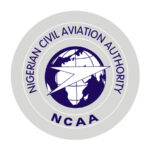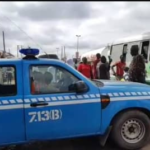Tongues have continued to wag among Hajj and Umrah stakeholders and aviation analysts, among others, over the “deportation” of passengers on an Air Peace flight to Jeddah, Saudi Arabia on Sunday night. It was a development that has triggered divergent reactions with experts pontificating on what might have gone wrong.
The drama happened when President Bola Ahmed Tinubu was still in the West Asian kingdom where he participated in the Saudi-African summit in Riyadh.
But in what appeared like an anti-climax, after a productive engagement at the summit by the president, his compatriots were subjected to humiliation on Sunday night when they were deported after landing at King Abdul-Aziz International Airport, Jeddah, aboard an Air Peace flight from Lagos and Kano.
Though Air Peace, Nigeria and West African largest carrier, is not new to Saudi Arabian airspace having been airlifting pilgrims for the annual Hajj exercise, this was the first time the airline would be starting a scheduled operation to the Kingdom which another Nigerian carrier, Med-View Airline, was doing before now.
- NIGERIA DAILY: Are You Feeling The Effect Of Naira Scarcity?
- 26 migrants from Cameroon, Burkina Faso arrested in Edo
The commencement of direct flight to Saudi Arabia by a Nigerian carrier has widened flight options for Nigerians travelling to the kingdom who hitherto had to go through a foreign carrier and endure the hassle of connecting flights.
Again, the huge volume of passengers on that route has made it one of the most lucrative for foreign airlines, more so at a time the Umrah season has peaked.
Many aviation stakeholders suspected it could be aero-politics at play. Aero-politics is a term used in the airline industry to explain the interplay of forces, tactics, intrigues and horse-trading aimed at gaining commercial advantage against another country’s airline.
In this situation, countries that understand the game swiftly move in to protect their airlines and ensure the commercial pacts and rules of engagement are not skewed against them.
A former Commandant of the Murtala Muhammed International Airport (MMIA), Group Capt. John Ojikutu, warned against any action that suggests a Nigerian carrier is being targeted.
“The action of the Saudi authorities is shocking. There is aero-politics there and there is also diplomacy. There is the need for the Nigerian government to stand firmly with Nigerian carriers and also designate them as flag carriers so that other countries will know that they represent the country.
“Government must come out and intervene. The government must be behind Air Peace now to ensure that it is not denied its rights as contained in the Bilateral Air Service Agreement (BASA) between the two countries. The Ministry of Foreign Affairs must not keep quiet. Nigeria must not keep quiet,” he said.
Though the Saudi Arabian authorities have not come out to explain their own side of the story, findings from different tour operators indicated that the passengers on that flight went with visas that were found “questionable” after they had been issued.
But some observers wondered why the Kingdom did not do the same thing with other airlines like Qatar, Egypt Air, Ethiopian Airlines, or Saudia, among others who have been bringing in passengers.
Our correspondent reports that Saudi Arabia has different visa types including Government Visa, Diplomatic & Official Visas, Diplomatic Missions & Organizations, Tourist Visa, Business Visit Visa, Employment Visa, Residence Visa, Premium Residency Visa, Hajj and Umrah Visa and Student Visa, among others.
The Hajj and Umrah visa is one of the common types issued by the authority through Hajj and Umrah tour operators represented by the Association of Hajj and Umrah Operators (AHUON), especially during the Umrah season.
But it was learnt that a new business eVisa was introduced about two weeks ago by the Saudi Arabian authorities which has a one-year multiple validity period and it was contracted to some Saudi Arabian companies under the auspices of Saudi Digital Embassy (eVisa).
Saudi Arabia introduced the eVisa in order to open its doors to the world with the fast and easy-to-use portal for international visitors from 63 eligible countries.
The eVisa, according to the Saudi’s eVisa page, “will be a one-year, multiple entry visa, allowing tourists to spend up to 90 days in the country. The tourist visa allows you to take part in tourism-related activities such as events, family and relatives visits, leisure, and Umrah (excluding Hajj) and excludes other activities such as studying.
This was the visa reportedly used by the affected passengers as confirmed by some tour operators. But while other airlines have been accepting passengers using the same visa type, many stakeholders are questioning what might have gone wrong with the Air Peace passengers.
The federal government, through the Ministry of Foreign Affairs, said it has commenced a probe into the matter even as the aviation authorities are said to have also waded in.
Similarly, it was learnt that the leadership of the tour operators association has commenced a separate investigation to ascertain the circumstances surrounding the treatment of the passengers.
The Vice-President of AHUON for the South-West Zone, Alhaji Qasim Alabi, while speaking with our correspondent said while the business visa issued was valid, there were questions about the passengers on board.
He said, “What I learnt is that there was an issue. The passengers were holding business visas and for the business visa, it means you can travel anywhere in Saudi Arabia and one wonders why a 17-year-old woman would be in possession of a business visa. One wonders why somebody who is aged, like a 70, 80 years will have a business visa. We also learnt that many of them were issued one-way tickets. But I think that has to do with the fact that people got the kind of visas they were not supposed to get. People who actually got Umrah visas and tourist visas were allowed to enter Saudi Arabia.
“We don’t know who is who now but we are still investigating. What I know is that a person who has a genuine visa can’t be denied a visa. For your information, are you aware that Saudi Arabia said anybody who has gotten a UK visa and has travelled with it and it is stamped can get a visa at the point of entry in Saudi even at a cheaper rate?
“It is not about fighting the airline now, it is about the fact that due process was not followed.”
Another Hajj and Umrah tour operator, Alhaji Haruna Ismail said, “We agreed to set up a small committee to really investigate what happened. For now, I can’t say much about the issue.”
Some of the passengers who travelled on the flight, it was learnt, are said to be taking up the matter with their operators which explained why the AHUON leadership has stepped in.
Experts in the Hajj and Umrah industry, however, said only a proper investigation would help in unravelling the truth about what transpired.
A hajj legal consultant and founder, Hujjaj Rights Independent Monitoring Foundation, Alhaji Mohammed Babangida Umar, in a chat with our correspondent, said, “I think it may be too early to comment; until all the facts are available on the table. I will be reluctant to blame the airline since it wouldn’t have been possible for the carrier to fly to Saudi without the required approvals (designation, FOC etc).
“I also do not want to expect any of the passengers to board the aircraft without a valid visa knowing the implications with Saudi immigration and security unless the tour operators who issued the visas flouted some rules or guidelines that were not made known to them in advance.
“Some have pointed at aero-politics which may well be a factor. Whatever may be the case, the situation was in my view totally avoidable if proper care and regulatory oversight were done by key stakeholders and agencies.”
Alhaji Bello Butake, CEO of Butake Resources Limited, an aviation ground handling firm, said only a proper investigation would unravel the cause.
He, however, advised that Air Peace can officially take up the matter with the Ministry of Aviation if it feels it was being targeted by the Saudi Arabian authorities, adding that, as contained in the bilateral air service agreement (BASA), the doctrine of reciprocity can be enforced against Saudi airlines.
So far, there is no official communication from the Saudi Arabian authority. A Saudi visa representative who was contacted through a number provided on the Saudi eVisa website told our correspondent to contact the Ministry of Foreign Affairs or the tour operators who assisted the passengers in obtaining the visas.

 Join Daily Trust WhatsApp Community For Quick Access To News and Happenings Around You.
Join Daily Trust WhatsApp Community For Quick Access To News and Happenings Around You.


